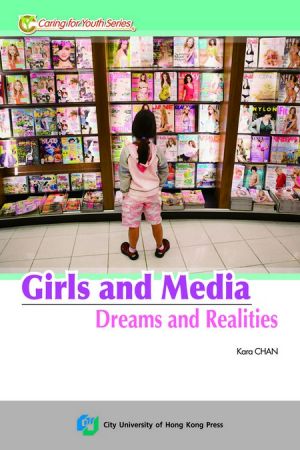The youth market is important to advertisers worldwide because of its size, its homogeneity and its growing purchasing power. A study by Giges (1991) found that the lifestyles and consumption habits of people aged 14 to 34 around the world are similar, especially in terms of their consumption of soft drinks, beer and footwear. Among the 1.8 billion youth aged 10 to 24 in the world, a billion (61 percent) live in Asia (Nugent, 2006), making Asian youth an important target market for products as well as social ideas. Some of them even have relatively more disposable income than their Western counterparts because of more generous allowances and income from part-time jobs (Sharma, 2002). Within this region, Hong Kong is a major market with a strong economy, a central location, and many active global marketers.
Consumption is an important issue for young people because material possessions are often used by young people as an expression of the extended self (Belk, 1988). Values such as materialism can be expected to affect young people's private and public choices throughout their lives (Goldberg et al., 2003).
This book will explore how young people in Hong Kong interact with various consumer socializing agents including parents, peers, celebrities, the media, marketers, retailers, and advertisements in the marketplace. The term young people will be used referring to the population aged 13 to 29. The book starts with an overview of the demographics of Hong Kong youth. Their education and their attitudes toward money will be discussed. The consumption environment and the values prevailing in the society will be elaborated. Chapters 2 to 4 discuss how young people interact with socializing agents such as their parents, their friends, and marketers. Chapter 5 describes how young people use traditional as well as new forms of media, and Chapter 6 attempts to analyze the contents and appeals of advertisements that target at young people. Chapters 7 to 9 discuss how young people interact with commercial communication. Chapter 7 examines how they see advertising in general and Chapter 8 investigates the characteristics of advertisements that young people like and dislike. Chapter 9 focuses on Hong Kong youngsters?attitudes toward branded goods. Their reactions to government publicity are the topic of Chapter 10, which examines how they read and interpret pro-social messages. Chapter 11 examines factors that contribute to the endorsement of materialistic values among young people. Chapter 12 discusses the undesirable effects of consumption, including financial debt and compulsive consumption. The last chapter provides insights for marketers and media education for parents, educators, and policy makers.
Much of this material will be discussed in light of the findings of research conducted in Hong Kong and abroad. The findings will be interpreted in terms of their implications for marketers, educators, parents and public policy makers. The research has included surveys, qualitative interviews, visual studies, content analysis, as well as semiotic analysis. Some of the empirical findings have previously been published in specialist publications such as the Journal of Product and Brand Management, Journal of Consumer Marketing, Qualitative Market Research: An International Journal, and Social Behavior and Personality. This book intends to benefit parents, educators, non-profit organizations and public policy makers as they attempt to understand values endorsed by the young consumers in Hong Kong and, to some extent, around the world.
Youth and Consumption
Author / Editor
Kara CHAN
HKD180.00
In stock
The global youth market is important to international marketers, educators, and policy makers because of its growing purchase power, homogeneity, and its readiness to accept new innovations.
This book explores the interplay of the youth segment and the market environment. It employs a variety of research methodologies to analyze how young people in Hong Kong interact with various consumer socializing agents, including parents, peers, media celebrities, government publicities, media contents and advertisements.
With evidence-based advice on how to communicate with the youth in the context of consumption of products, services, and ideas, this volume will prove to be a very useful reference to a wide range of readers, including marketing professionals, counselors and educators who work closely with young people as a unique group of target audience.
*Available on Amazon China
This book explores the interplay of the youth segment and the market environment. It employs a variety of research methodologies to analyze how young people in Hong Kong interact with various consumer socializing agents, including parents, peers, media celebrities, government publicities, media contents and advertisements.
With evidence-based advice on how to communicate with the youth in the context of consumption of products, services, and ideas, this volume will prove to be a very useful reference to a wide range of readers, including marketing professionals, counselors and educators who work closely with young people as a unique group of target audience.
*Available on Amazon China
ISBN
978-962-937-152-4
Pub. Date
Jul 1, 2010
Weight
0.5kg
Paperback
344 pages
Dimension
190 x
235 mm
Subjects
- Youth as Consumers
- Parents and Friends as Socializing Agents
- Social Comparison with Peers and Media Celebrities
- Marketers and Retailers as Socializing Agents
- Use of Traditional and New Media
- Advertisements for Young People
- Attitudes toward Advertising
- Television Commercials Liked and Disliked
- Branded Goods: Perceptions and Ownership
- Young People and Public Service Advertising
- Consumerism and Materialistic Value Orientations
- Undesirable Consequences of Consumption
- Youth and Consumption in Hong Kong: Summary, Conclusions, and Implications
Kara Chan (PhD, City University of Hong Kong) is a Professor at the School of Communication, Hong Kong Baptist University. She worked in the advertising business and as a statistician for the Hong Kong Government before she moved into academia. Her research areas are cross-cultural consumer studies and health communication. She has published seven books as well as over 140 journal articles and book chapters. She was a Fulbright scholar at Bradley University, Illinois as well as a Visiting Professor at Copenhagen Business School, Aarhus University and Klagenfurt University. Her journal articles have won five Emerald Literati Network Awards for Excellence. She received awards for Outstanding Performance in Scholarly Work at Hong Kong Baptist University in 2006 and 2014.
Related Titles
-
 Youth Empowerment and Volunteerism: Principles, Policies and PracticesEdited by Elaine S. C LIU, Michael J. HOLOSKO, Tit. Wing LOHKD180.00
Youth Empowerment and Volunteerism: Principles, Policies and PracticesEdited by Elaine S. C LIU, Michael J. HOLOSKO, Tit. Wing LOHKD180.00 -













